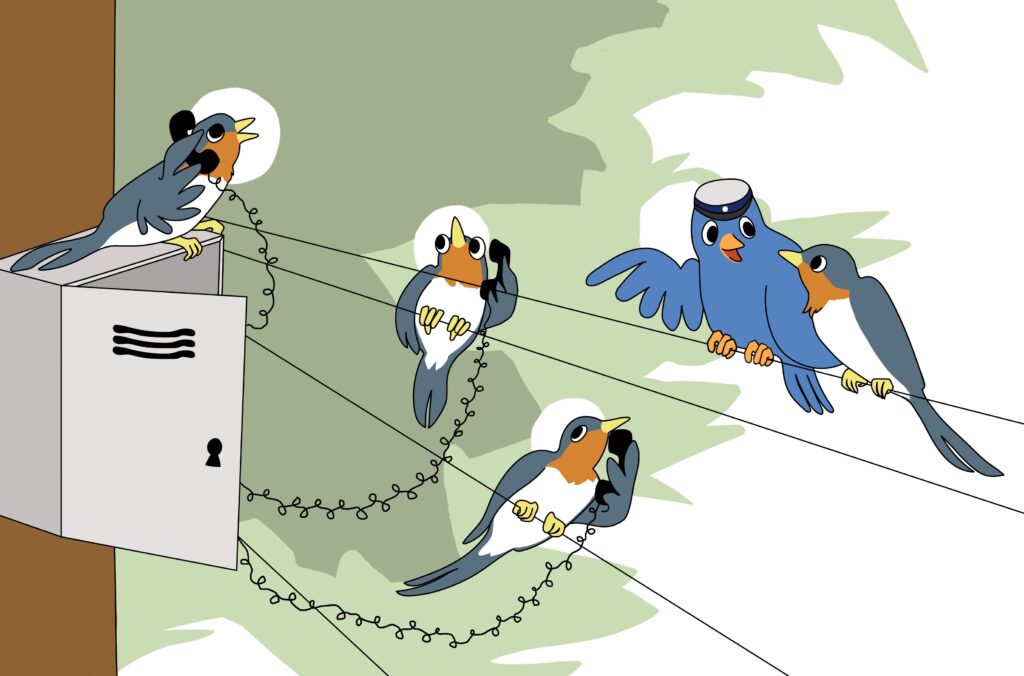- Career Hub
- Future Skills
- Academic planning
- Planning further studies
- Planning your studies
- How to manage your studies?
- How to plan for your studies?
- How much freedom do you have to modify your studies?
- When to make learning choices within the curriculum?
- How little or how much can you study?
- How can you concentrate on and manage the time of studies?
- How to change specialisations?
- How to study well?
- Internship
- International experience
- Work-life development
- Act and grow
Communication skills

Communication skills mean the ability to create a connection with a person, to listen to them, and to express oneself clearly. This means, on the one hand, the cognitive ability to understand the mother or foreign language, to present information and ideas both orally and in writing in a clear and persuasive manner. On the other hand, good communication requires active listening to the other party, understanding them, and thoughtfully responding to them. Meaningful nonverbal communication methods (for example, facial expressions) are also important.
A person with good communication skills is aware of both their own and the other person’s needs and desires, understands and values individual differences, and is willing to create a trusting relationship with them. A skilled communicator copes with different (cultural) environments and is able to adapt their communication style and message as needed.
| A moment of reflection: Communication with people takes place every day: at work, school, in the store, or on the street. How do you behave in different communication situations? How well can you find common ground with different communication partners? Are you present in the conversation and actually listening to what your companion is telling you? Are you able to express yourself to your conversation partner in a way that ensures mutual understanding and makes the conversation pleasant and polite? How much attention do you pay to the expression on your face during a conversation? Can you show openness to your communication partner with your body language? How clearly do you express yourself in writing and in which format do you excel particularly well? |
Inspiration to take action
- Find out what is active listening and why it is important in communication.
- Be aware of the signals you give to others with your body language. What is your tone of voice, facial expression, and body language? Do they convey the desired message?
- Speak loudly and clearly according to the situation so that others can hear you.
- If you find yourself in a difficult communication situation, be emphathetic and try to think from the other person’s perspective.
- Put yourself in situations where you have to communicate with new people and those who differ from you.
- Analyse yourself as a communicator, taking into account your personality traits.
- Observe people who are good communicators. Watch how they start and lead the conversation and what kind of questions they ask.
- Be brave in sharing your ideas. This gives the conversation partner a sign of your desire to communicate, develop the conversation, and may lead to an interesting exchange of ideas.
- Practice public speaking, as it increases your confidence in expressing your thoughts. Also, public speaking makes you more memorable and gives people something to talk about in future conversations.
- Talk about your professional activities in different social groups. This will give you a better understanding of how to tailor your message to the listener in a way that is understandable and interesting.
- Join a student organisation (in Estonian) or another team (joint project group, workout group, etc.). This provides an opportunity to build a strong and supportive social network around you.
- Take part in student-led conversation circles.
- HVKU.05.054 Art of Applied Writing, 3 ECTS
- SVUH.00.178 Social Digital Competences, 6 ECTS
- Bolton, R. (1979). People skills: how to assert yourself, listen to others, and resolve conflicts.
- McKey, M., Davis, M., Fanning, P. (1984). The Communication Skills Book.
- Read the articles on the Counselling Centre’s webpage on ways of helping yourself (in Estonian).
